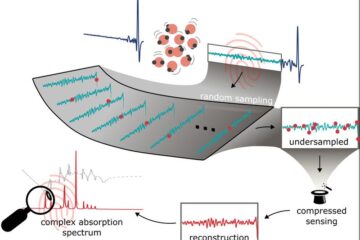Prolonged fructose intake not linked to rise in blood pressure: Study

A new study has found that despite previous research showing blood pressure rose in humans immediately after they consumed fructose, there is no evidence fructose increases blood pressure when it has been eaten for more than seven days.
In fact, researchers led by Drs. David Jenkins and John Sievenpiper observed a significant decrease in diastolic blood pressure – the measure of blood pressure when the heart is relaxed between contractions– in people who had eaten fructose for an extended period of time.
“A lot of health concerns have been raised about fructose being a dietary risk factor for hypertension, which can lead to stroke, cardiovascular disease, renal disease and death,” said Vanessa Ha, a Master of Nutritional Sciences student and the lead author of the paper. “However, we wanted to determine whether fructose itself raised blood pressure, or if the apparent harm attributed to fructose was simply because people are eating too many calories.”
For example, we know that people are consuming more soft drinks than ever, but is it the fructose, the extra calories, or possible other factors that are adding to their illnesses, she said.
The study looked at the effect of all sources of fructose, including natural and crystalline. Fruits are the primary source of naturally occurring fructose, and the fructose molecule found in fruits and vegetables is the same fructose found in high-fructose corn syrup. Crystalline fructose is a processed form which has added water and trace minerals.
In the systematic review and meta-analysis, Ha and colleagues pooled the results of 13 controlled feeding trials which investigated the effects of fructose on blood pressure in people who had ingested fructose for more than seven days.
The 352 participants included in their analysis ate an average of 78.5g of fructose every day for about four weeks. The U.S. average is an estimated 49g per day.
The paper is published in Monday's edition of Hypertension, a journal of the American Heart Association.
About St. Michael's Hospital
St. Michael's Hospital provides compassionate care to all who enter its doors. The Hospital also provides outstanding medical education to future health care professionals in more than 23 academic disciplines. Critical care and trauma, heart disease, neurosurgery, diabetes, cancer care, and care of the homeless are among the Hospital's recognized areas of expertise. Through the Keenan Research Centre and the Li Ka Shing Knowledge Institute, research at St. Michael's Hospital is recognized and put into practice around the world. Founded in 1892, the Hospital is fully affiliated with the University of Toronto.
For more information or to speak to Vanessa Ha please contact:
Kate Taylor
Public Relations Specialist
St. Michael's Hospital
Phone: 416-864-6060 x6537
TaylorKa@smh.ca
Media Contact
More Information:
http://www.smh.caAll latest news from the category: Health and Medicine
This subject area encompasses research and studies in the field of human medicine.
Among the wide-ranging list of topics covered here are anesthesiology, anatomy, surgery, human genetics, hygiene and environmental medicine, internal medicine, neurology, pharmacology, physiology, urology and dental medicine.
Newest articles

A novel universal light-based technique
…to control valley polarization in bulk materials. An international team of researchers reports in Nature a new method that achieves valley polarization in centrosymmetric bulk materials in a non-material-specific way…

How evolution has optimised the magnetic sensor in birds
The magnetic sense of migratory birds is probably based on the protein cryptochrome 4, and a genetic study has now provided further support for this theory. A team of researchers…

Molecular Fingerprint Beyond the Nyquist Frequency
Ultrafast laser spectroscopy allows the ascertainment of dynamics over extremely short time scales, making it a very useful tool in many scientific and industrial applications. A major disadvantage is the…





















